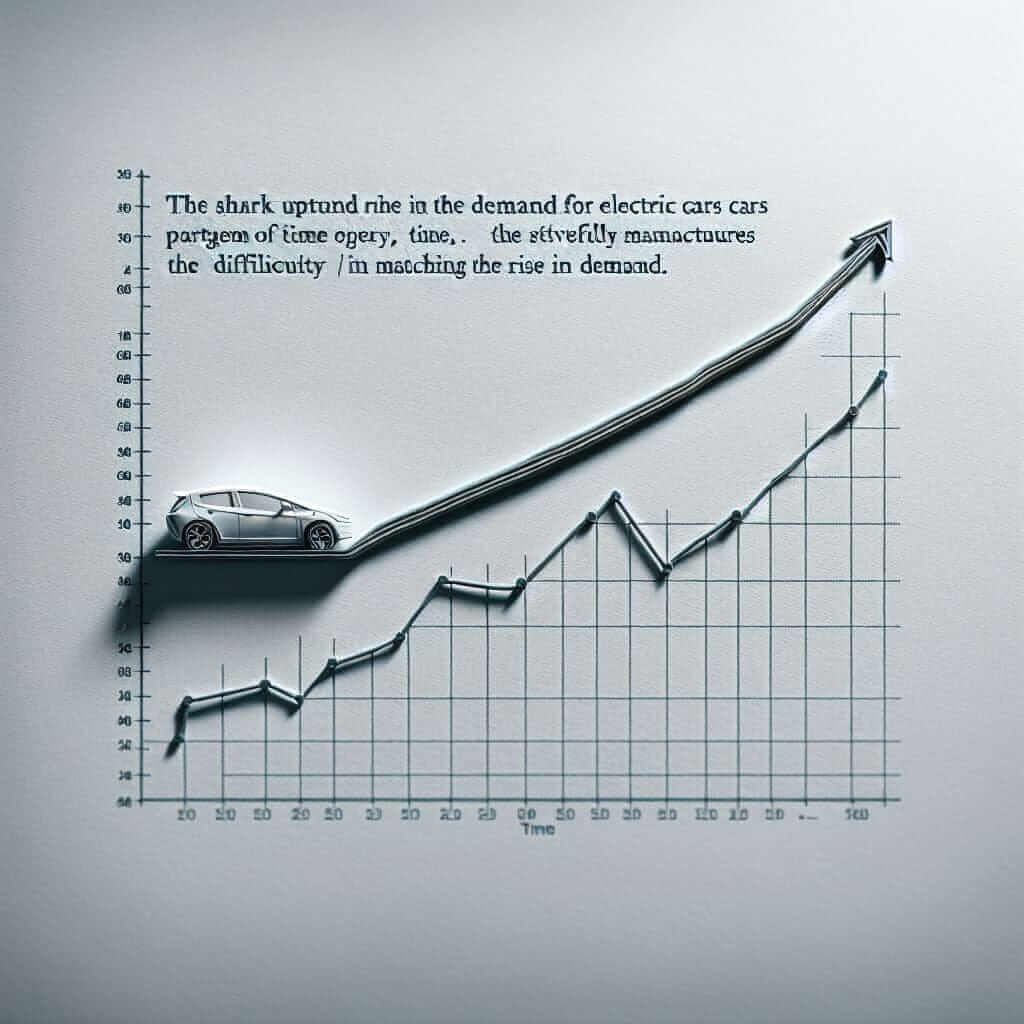The phrase “such was the demand…” might sound a bit formal at first, but it’s incredibly useful for IELTS Writing, particularly in Task 1 when you need to describe trends. In fact, it’s a great way to highlight a dramatic increase and its impact.
Let’s look at a few examples of how this structure can be used in different IELTS Writing tasks:
Task 1:
- “Such was the demand for smartphones in 2022 that production doubled compared to the previous year.” (This sentence emphasizes the sharp rise in demand and its direct effect on production.)
- “Such was the popularity of online shopping during the pandemic that traditional retail stores experienced a significant decline.” (Here, the sentence highlights the strong trend toward online shopping and its negative impact on physical stores.)
Task 2:
- “Some argue that social media has a negative impact on society. Such is its influence, however, that it cannot be ignored as a tool for marketing and communication.” (In this case, the phrase acknowledges the opposing view while emphasizing the undeniable impact of social media.)
Now, let’s break down this powerful phrase and how you can use it to boost your IELTS score.
Understanding “Such Was the Demand…”
This phrase follows a specific grammatical structure:
Such + be (was/is) + subject + that + clause
Let’s break down each part:
- “Such”: This word acts as an intensifier, emphasizing the extent or degree of something.
- “Was/is”: The verb “be” is used in the past tense (“was”) or present tense (“is”) depending on the context.
- “Subject”: This is the noun or noun phrase that follows “was” or “is” and represents what is being emphasized (e.g., “the demand,” “the popularity”).
- “That”: This conjunction connects the emphasized element with its consequence or effect.
- “Clause”: This part of the sentence explains the result or consequence of the emphasized element.
Mastering the Structure for IELTS
Formula and Application:
[Such] + [be (was/is)] + [Noun/Noun Phrase – representing the emphasized element] + [that] + [Clause – explaining the consequence]
Example:
Such + was + the demand for electric cars + that + manufacturers struggled to keep up.
 Demand for Electric Cars
Demand for Electric Cars
Writing Samples:
- IELTS Task 1: “The graph illustrates the growth of online sales between 2010 and 2020. Such was the increase in online shopping that many physical stores were forced to close.”
- IELTS Task 2: “Many believe that technology has made our lives easier. Such is the convenience it offers that we now rely on it for even the simplest of tasks.”
Achieving a Higher Band Score
Using “such was the demand…” demonstrates a strong command of grammatical structures, which is essential for achieving a higher band score. It shows the examiner that you can:
- Use complex sentences effectively: This structure allows you to combine two clauses to express a cause-and-effect relationship concisely.
- Employ sophisticated vocabulary: Words like “such” and “demand” showcase a wider range of vocabulary.
- Highlight important information: By using this phrase, you draw the reader’s attention to the key trend or point you want to emphasize.
Common Mistakes to Avoid
Here are some common errors to watch out for when using this structure:
- Incorrect verb tense: Make sure the verb “be” agrees with the time frame you are describing.
- Missing “that”: Remember to include the conjunction “that” to connect the emphasized element with its consequence.
- Unclear subject: Ensure the subject after “was/is” is clear and directly related to what you are emphasizing.
Incorrect: Such the popularity of the product, many stores sold out.
Correct: Such was the popularity of the product that many stores sold out.
Conclusion
Mastering phrases like “such was the demand…” is a valuable tool for boosting your IELTS Writing score. By understanding its structure, using it appropriately, and avoiding common mistakes, you can effectively demonstrate your grammatical range and ability to convey information clearly and concisely. Keep practicing, and soon this powerful phrase will become a natural part of your writing arsenal.


